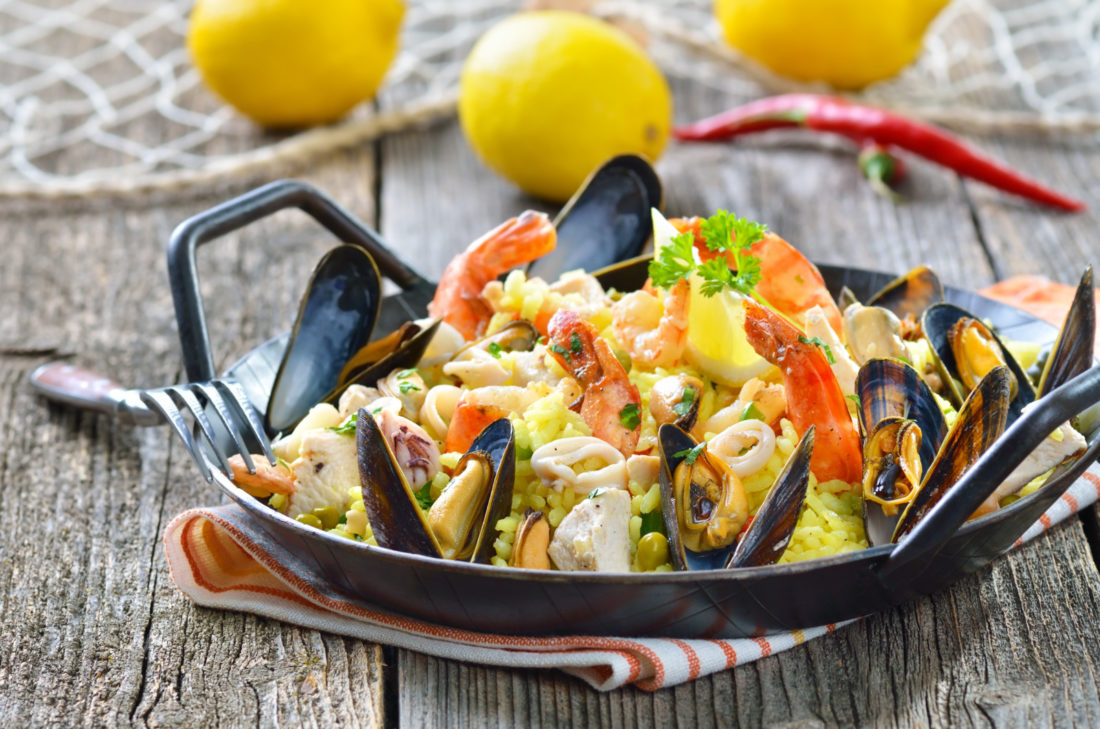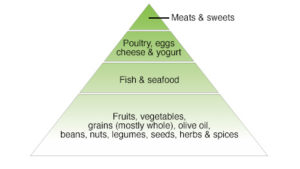Mediterranean Diet – HOW to go about eating it?
A traditional Mediterranean diet has been shown to have significant health benefits. But can you follow it if you live nowhere near a Greek island?
We’re always being told a traditional Mediterranean-style diet is an incredibly healthy way to eat.
Recent studies have shown this eating pattern can reduce your risk of dementia and reverse symptoms of depression and anxiety. It also helps with weight management, balances digestion. As well as its proven benefits in preventing heart attacks and promoting a longer life generally, it has specifically been shown to help ward off diabetes as well as bowel and prostate cancers. It is simply too good for too many aligments to not to consider trying it for ourselves.
Anything that good for you might be expected to smell foul and come in a medicine bottle, but the Mediterranean diet is generally considered to be delicious, except by those who hate olive oil.
Lets look at what is the diet composed of historically and the ways we can incorporate healthy Mediterranean Diet into our busy lifestyles.
The Mediterranean diet is based on a rural life where people ate what they grew, which is fast disappearing. The UN has recognised the diet as an endangered species. In 2013, Unesco listed the Mediterranean diet as part of the intangible cultural heritage of humanity in Cyprus, Croatia, Spain, Greece, Italy, Morocco and Portugal.
It is about an eating style based on large amounts of vegetables and fruits, legumes such as beans, lentils, peas and peanuts, whole grains and especially olive oil.
Fish and seafood are part of it, but their consumption varied in the past according to how close people lived to the sea. Chicken, eggs and small amounts of dairy, such as cheese and yoghurt, are there in moderation, but red meat and sweets would rarely be consumed. The diet includes a small amount of wine with meals. Pasta, bread and potatoes are variables from one region to another. It is quite a high-carbohydrate diet, which was fine when people were physically active on farms or fishing boats.
What you might eat in a day:
- Eating primarily plant-based foods, such as fruits and vegetables, whole grains, legumes and nuts
- Use of olive oil
- Using herbs and spices to flavor foods
- Limiting red meat
- Eating fish and poultry at least twice a week
- Enjoying meals with family and friends
- Drinking red wine in moderation
Picture adapted from Oldways Preservation and Exchange Trust,
2016
There is no doubt that the Mediterranean diet is good for you.
But shifting the habits of people to adopt, cook and eat it regularly in societies dominated by packaged food manufacturers is quite a task.
Learning how to shop and cook is number one skill to develop, followed up then by commitment to improving a lifestyle and a diet holistically.
Check out my Nutritional Workshops at Trupp Cooking School where you can learn how to implement nutrition in the most delicious way.
Learn how to shop and cook, or book a Nutritional Consultation to receive an individualised Nutritional Protocol.
Some of the must attend workshops are :
Lose Weight Now AU $99
Heal your gut with lost art of fermentation and probiotic foods AU $139
Balance your body effortlessly with living raw foods AU $208



